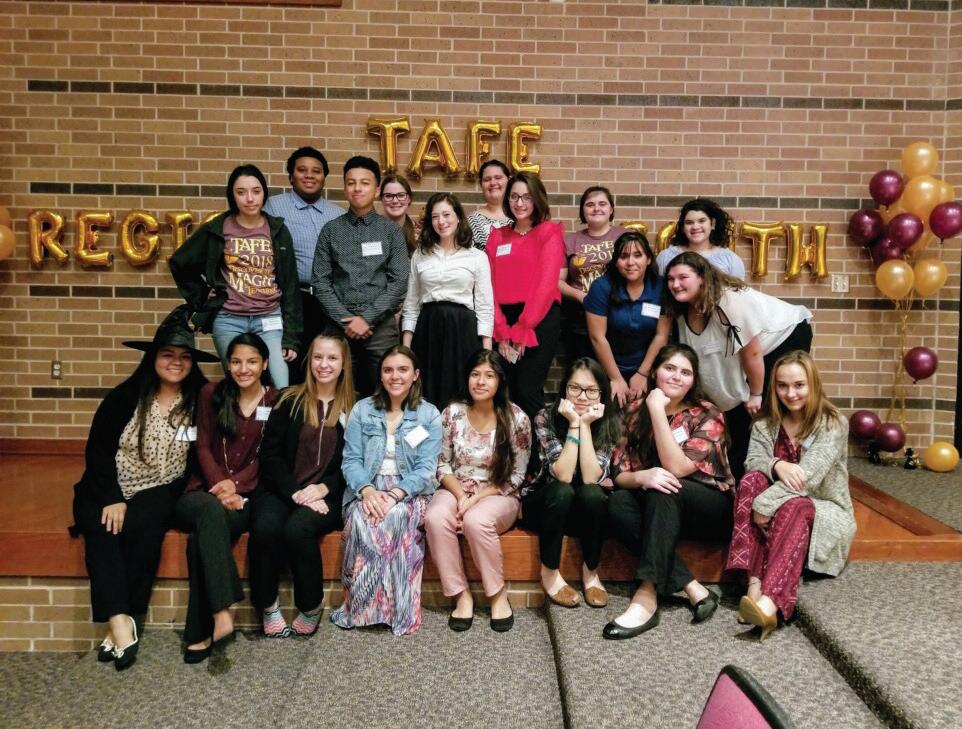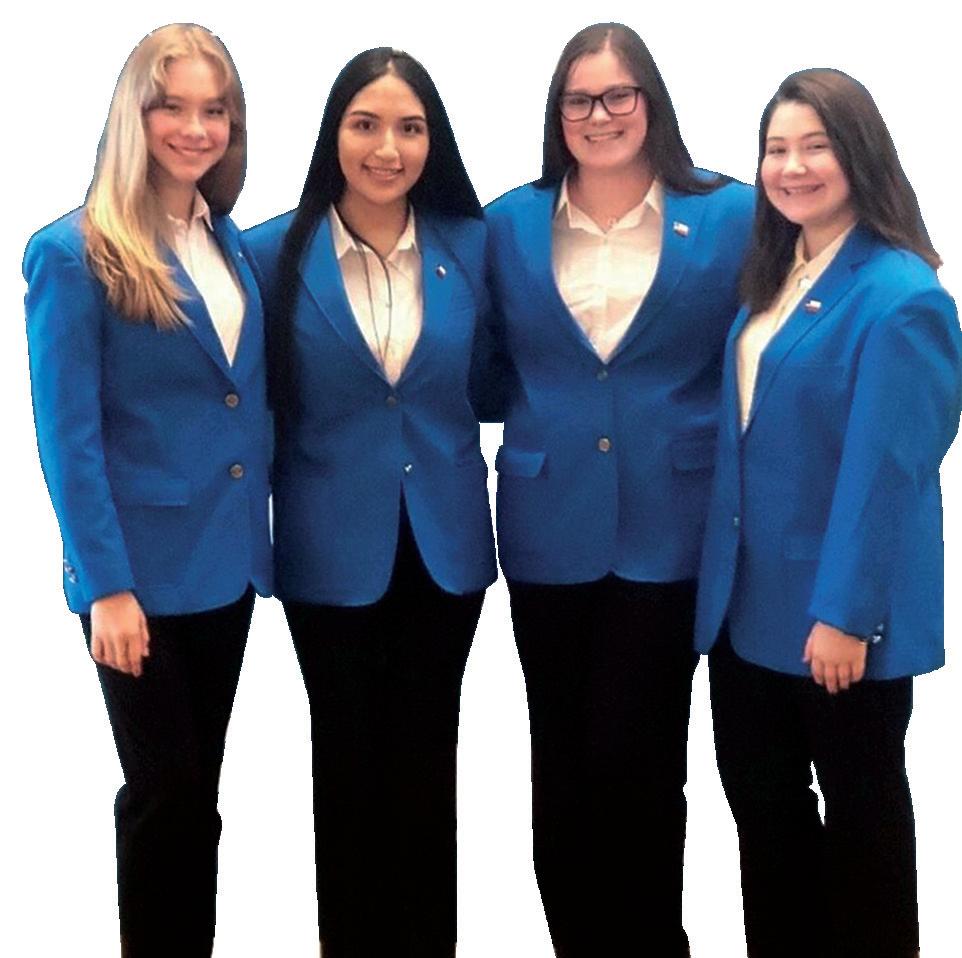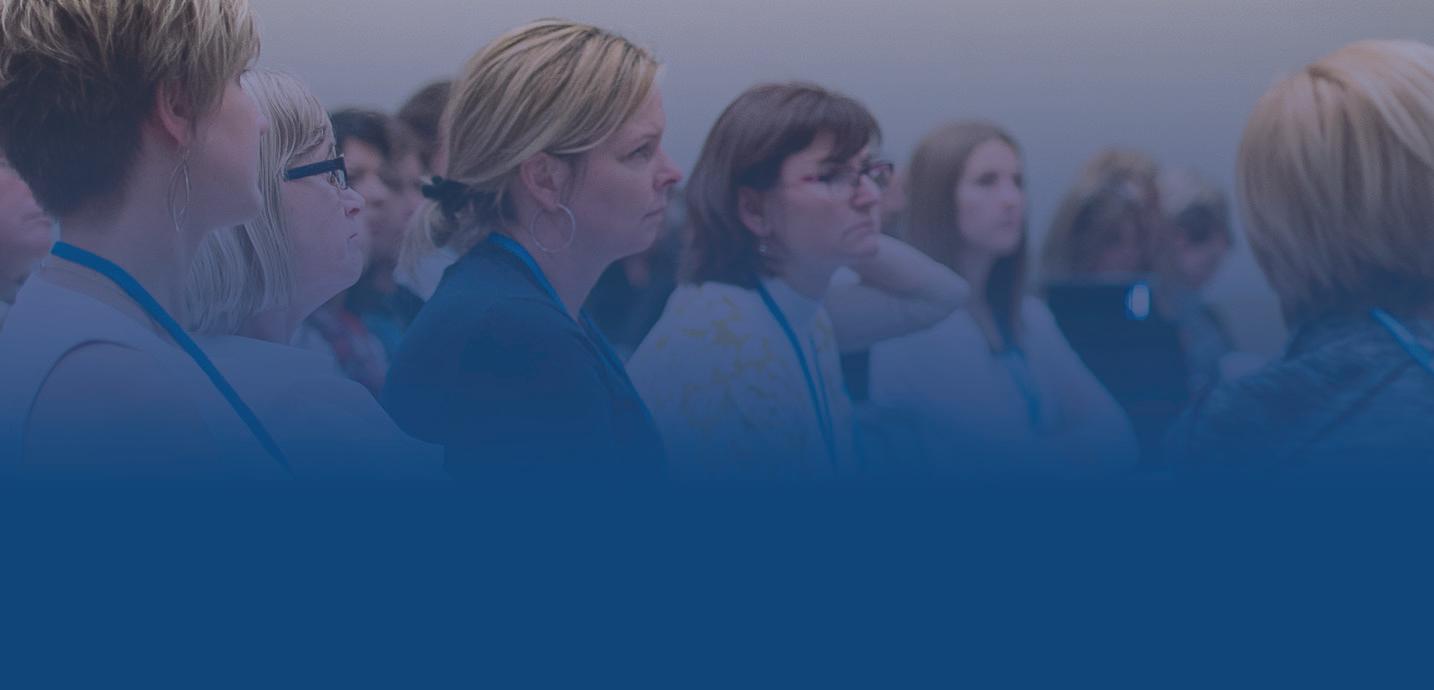
7 minute read
Spotlight: Strengthening the Future of Education

Strengthening the Future of Education

How one student organization hopes to inspire the next generation of educators
Teaching is facing a profound shortage of new blood. The average age of teachers across the country is around 42, per the National Center for Education Statistics, with the majority of teachers aged between 30–49 years old. The number of college students attending and completing teacher preparation programs dipped 23% between 2007 and 2016, according to a 2018 report by the American Association of Colleges for Teacher Education, and about half of all college graduates who went into the teaching profession ended up leaving it altogether in less than five years.
Commonly cited factors such as low pay, lack of support or autonomy, changing curricula, and stressful working conditions have added to the perception among students that entering the teaching profession might not be worth the hassle. INTERVIEW BY JESÚS CHÁVEZ
Whatever the case may be, it’s become clear young people are increasingly resistant to the idea of becoming teachers, at least for the long term.
Enter the Texas Association of Future Educators (TAFE), a statewide nonprofit student organization focused on giving middle and high school students the opportunity to explore teaching as a profession early on so they know what to expect when they begin their careers. With approximately 7,000 members across Texas, TAFE’s goal of inspiring young people to become dedicated teachers might be key to ensuring the future of the profession.
ATPE is a professional learning partner to TAFE and spoke with Donita Garza, the TAFE state program director, about the organization, its goals, and more. Garza has been with TAFE for 16 years and is in her sixth year as director.
What is the goal of an organization like TAFE?
Our goals are the following: Recruit qualified youth to become teachers to help eliminate the shortages within the profession and strengthen requirements for teacher candidates; provide students with experiences in high school that will keep them committed to becoming teachers throughout their college careers; strengthen the image of the teaching profession by providing information and counseling to students; encourage personal growth of future educators through participation in region and state meetings, organizations, and workshops; and increase student involvement and foster pride in their schools and contributing to the educational experience.
How does TAFE membership help future educators successfully transition to the teaching profession?
[TAFE members] get a chance to experience different aspects of education they may not have ever had the opportunity to experience. They get an opportunity to connect with multiple university personnel who can help them decide where they want to continue their teacher preparation. They get to know what teaching is about before they spend four years in college and realize during student teaching that it is not for them. When they start teaching, they are better prepared for [its rigors] and know more about what to expect.
Why should students interested in the teaching profession consider joining?
TAFE is the only Texas Career and Technical Student Organization that has the central focus of providing opportunities for [middle and high school] students to develop skills necessary for becoming effective educators. We provide opportunities for students to develop service and leadership skills focused specifically on education. A majority of our students are highly motivated and fully invested in the teacher education field; we also help students meet with personnel from colleges and schools of education [at] multiple universities so [they can] make informed decisions about where they want to pursue teacher preparation.
What are some benefits specific to TAFE members?
TAFE members can explore their interests and abilities related to the various teaching fields, learn how to become a teacher, and develop character, service, and leadership skills that are essential to becoming effective educators. Our members can apply for scholarships and awards. They can be a part of a growing network of middle school, high school, and college students pursuing a career in education and make lifelong friendships.
What’s been your favorite thing about being a part of TAFE?
It’s seeing students grow and develop their teacher skills [and] then become educators.

What are some ways in which current educators can become involved with TAFE?
If there is not a chapter in your school, you can start a chapter. If you have a chapter, you could volunteer to help the local chapter. Help promote TAFE in the classroom by identifying students who you think will make great educators and informing them about TAFE. When students are preparing for their competitive events, teachers and/or administrators could help the students by letting students job-shadow them, or they could listen to them [the students] practice and give pointers to help them polish their presentations. Teachers could volunteer to judge our competitive events at region and/or state conferences or do breakout session presentations at the region and/or state conferences.
Is there anything you’d like our members to know?
TAFE works hard to provide opportunities to students to develop their teaching skills starting in middle school, continuing through high school, and on into college. It is the hope of TAFE that with the ATPE partnership, the collegiate-level students will have more opportunities for continued support and professional development into their teaching careers. We are hoping with all the early training and support, the new teacher dropout rate will lessen.
For more information about TAFE, including how to get involved with TAFE at your school, visit tafeonline.org. For more information about ATPE Professional Learning Partners, visit bit.ly/ATPE_TAFE.
2019-20 TAFE State Officers
COMING TO TEXAS IN 2020



Build con dence, knowledge, and skills by joining acclaimed experts and master practitioners at an institute near you.



June 4–6 | Fort Worth, Texas July 14–16 | San Antonio, Texas October 7–9 | San Antonio, Texas

At our PLC at Work ® Institutes, collaborative teams learn how to achieve more together and leave with the strategies they need to drive real progress.
June 22–24 | Austin, Texas
Gain access to acclaimed experts, network with peers, and hear presentations built around what educators like you have told us are the most pressing assessment and grading challenges they’re facing today.
INSTITUTE
July 20–22 | San Antonio, Texas
Hear high-impact talks and participate in learning labs carefully designed to help aspiring and current women leaders develop high-performing teams, drive resultsoriented change, and make the greatest impact on student achievement.
September 29–October 1 | Fort Worth, Texas
Be called to action by a series of 20-minute high-impact talks by principals who have successfully nurtured collaborative teams and engage with other professionals in role-alike networking groups.
October 13–15 | Plano, Texas
Join acclaimed experts as they share how to design a multitiered system of support that prepares teams to not only provide effective interventions but also prevent learning struggles in the rst place.
A FREE NEWSLETTER FOR TEXANS FROM THE TEXAS TRIBUNE YOUR CIVICS CRASH COURSE AHEAD OF THE 2020 ELECTIONS
SUBSCRIBE TODAY teachmehowtotexas.org /atpe
COMMUNITY SUPPORT FROM
EDUCATORS MAKE GREAT STUDENTS

Stephen F. Austin State University offers myriad graduate educator preparation programs through online, hybrid and face-to-face formats.
ONLINE Master of Education early childhood elementary education (with or without reading specialist certification) secondary education special education (with or without educational diagnostician) educational leadership (principal preparation) Certificates
ESL/bilingual supplemental certificate principal or superintendent preparation supplemental certificates HYBRID Master of Education
special education with visual impairment or orientation and mobility Master of Arts
professional counseling (school counseling) school psychology
FACE-TO-FACE Doctor of Education
educational leadership (approx. every other Friday evening/all day Saturday) Doctor of Philosophy school psychology
Take classes to further your education when it’s convenient for you! For more information about these programs, contact Belinda Davis, James I. Perkins College of Education graduate studies coordinator, at (936) 468-1587 or coegrad@sfasu.edu.






